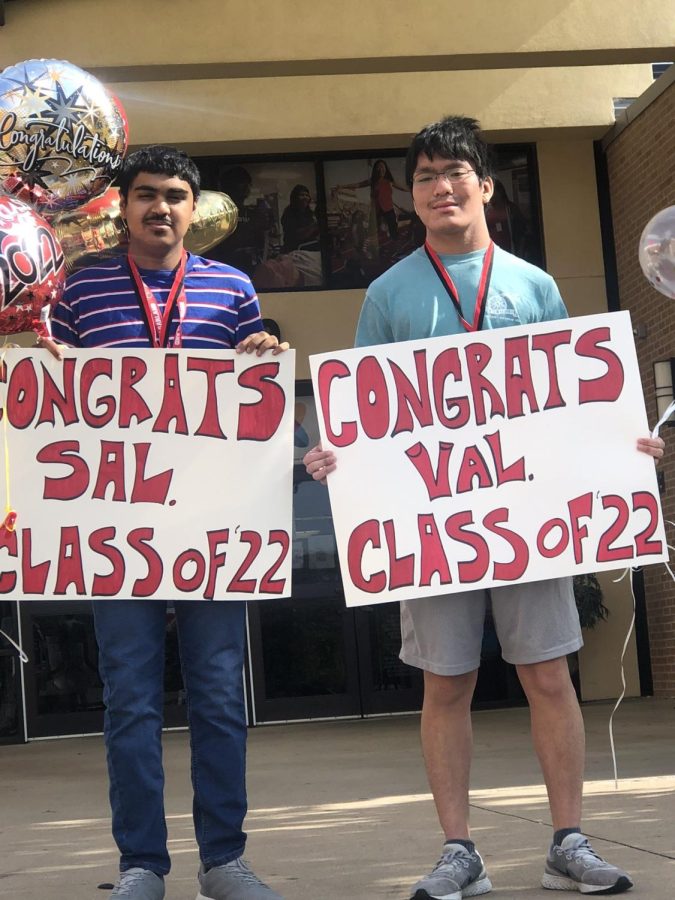How to succeed in school without really trying
April 20, 2015
While their friends sit at home and begin the long night of studying that lies ahead, juniors Micheal Kabtimer and Neal Patel simply grab some cool drinks and snacks from the fridge and get ready to watch a new movie. With a total study time of about two hours a week, the boys have maintained great grades in their core classes while simultaneously enjoying their social lives.
Even when he was younger, Kabtimer didn’t study much. He loved to read, especially fiction books, but he never had a flare for studying textbooks.
“My older sister [studied], so I tried it out, but I kept failing,” Kabtimer said. “So I just thought, ‘If I fail while I’m studying, and I fail while I’m not, I might as well stop studying.’ And then I remember I suddenly started passing.”
Both students have after-school activities and clubs that busy their schedules and make finding time for studying difficult. Sometimes, they don’t study simply because they get distracted by TV and friends. However, the students said they generally feel confident enough about their knowledge gained during class to not worry about studying.
“I do care about my grades,” Kabtimer said. “I know I’m not going to simply waltz through high school, consistently failing; that’d be setting myself up for failure all around, and that waltz would end up becoming more of a crawl. However, I’m not going to kill myself over an A when I feel that it won’t be of any use.”
Kabtimer believes that major things such as the SAT or ACT test are more important than basic school grades, and therefore sets more time aside for learning and studying for them. He does not associate grades and class ranks with his intelligence, but rather futuristic thinking and his ability to become successful in college.
“High school grades will only take you so far into getting accepted at a college; but they won’t take you beyond that,” Kabtimer said. “Once you’re there, it’s all new and you have to figure it out all on your own. Even if you made all A’s through high school, you have to be able to face totally new and different adversities once you get into college.”
Both plan on attending a big college or four-year university after high school. However, Patel believes that getting into a good college does not come solely from having good grades throughout high school.
“They want a well-oiled machine,” Patel said. “It all depends on how well-rounded you are. And while grades are one component of how successful you are, extracurriculars and things like that matter just as much. You can know your way around a textbook, but you’d still be useless if you don’t know your way around town.”
According to Patel, paying more attention and taking more notes during class times, rather than studying at home, helps him understand more. When a teacher informs him of a test, he looks over his notes again and makes any last connections that he believes will be important. However, he also believes his retention span depends on how much interest he has in the subject and whether or not he has the desire to remember the information.
“It’s all about repetition, like AVID always says,” Patel said. “It’s about taking interest, looking ahead, and anticipating what will be important.”
Both students agree that studying is an individual practice that should be different for everyone. According to Kabtimer, greatness does not come from forcing the same system on everyone. He believes every individual must find their own system of success, and then work at implementing it continuously.
“If you want to succeed, then you don’t need my advice,” Kabtimer said. “Personally, I wouldn’t recommend that other people do what I do and skip studying. I just think that if you can find a system that works for you, then do that.”
Kabtimer said that another driving force to success is the friendships and people he chooses to be around on a day-to-day basis. Proper influences will lead to proper choices; choosing to hang out with someone who strives for greatness just as he does helps better his own work ethic. Similarly, Kabtimer said keeping an open mind to new ideas and opinions helps him improve himself.
“When you see everything from one single perspective, you end up looking straight ahead of you – as if your vision is warped – while there’s so much going on in your peripherals that you’re missing because you won’t open up,” Kabtimer said. “Take things in stride; don’t overload yourself with trying to handle everything at once. And if you personally feel like you’re up for something, don’t let anyone else break that confidence. You decide your own limits, no one else does.”






















